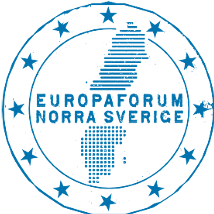Europaforum Northern Sweden (EFNS) is a network for politicians at the local and regional levels from Norrbotten, Västerbotten, Jämtland Härjedalen and Västernorrland. EFNS is a meeting place and a knowledge arena for discussion and analysis of the impacts of EU policy on northern Sweden. EFNS monitors European issues to influence EU legislation, the EU’s strategies and action programmes and the EU’s budget. The objective of EFNS is to safeguard the interests of northern Sweden both in the European arena and in relation to the national level in matters with a clear European perspective.
Europaforum Northern Sweden supports the purpose of the EU Deforestation Regulation — that goods consumed within or passing through the EU should not have contributed to deforestation or biodiversity loss. However, we believe that the Regulation, in its current form, has such significant shortcomings that it should be withdrawn and revised.
Our proposals in brief:
- Europaforum Northern Sweden advocates that the Deforestation Regulation be withdrawn and revised.
- As part of a revision, wood should be entirely excluded from the Regulation, as forestry and the wood trade — unlike other commodities covered by the Regulation — do not drive deforestation globally or within the EU.
- Forest owners’ forest management plans should be neither mandatory nor public.
- Deforestation for the purpose of restoring pastureland, arable land, and facilities for cattle should be permitted in countries where there is no risk of deforestation.
The Deforestation Regulation covers the commodities palm oil, soybeans, cattle, cocoa, coffee, rubber and wood. The commodities that primarily affect northern Sweden are cattle and wood.
The design of the regulation creates uncertainty, bureaucracy and increased costs that risk reduced activity in the forest industry, potentially leading to a shortage of forest raw materials at a time when the EU wants to increase activity and profitability in the bio-based economy. Today, there is global competition within the bio-based economy. With significantly increased regulation, reporting requirements, and legal risks in the forest-based bioeconomy, there is a risk that the EU will once again fall behind the United States and China in regards of competiveness.
We believe that this could particularly affect millions of small-scale forest owners across the EU. With increased legal risks and a growing administrative burden, these owners risk losing their independence in conducting business without relying on large companies that have the systems in place to manage reporting and mitigate legal exposure.
This may lead to reduced profitability for forest owners with smaller holdings. Their ability to take part in the emerging biobased economy should not be undermined. A significant increase in regulatory burdens tied to legal risks could result in more abandoned forests, particularly in southern Europe — thereby increasing the risk of wildfires and pest outbreaks.
Construction materials, energy, hygiene products, and bio-based packaging are commodities of strategic importance for the EU’s security of supply. The administrative burden and costs imposed by the Regulation risk hindering the production.
With the ambiguities in the text of the regulation, we see risks of recurring legal processes. The European Commission´s guidelines regarding how the text of the regulation should be interpreted do not have the same legal weight as the text of the regulation when a dispute ends up in court. When the text of the regulation and the guidelines for interpretation differ significantly, uncertainty arises, which can reduce the willingness to invest in the bioeconomy.
Arable land in Northern Sweden is becoming increasingly valuable due to the expanded cultivation zone in the north and increased drought in southern Europe. The climate in the north with an intensive growing season with lots of light and good access to water is particularly well suited for production of milk and beef, which is crucial for our security of supply. Limiting the possibilities to recreate pasture and arable lands is counterproductive.
Another aspect is that companies that produce milk and beef often also carry out forestry in the same company. Traditionally, income from the forest provides stability for the companies when prices of milk and beef fluctuates. Income from forestry or loans with forest as collateral are often used as a basis for investments in agriculture. When forestry becomes more difficult, the economic backbone of these companies for continued and developed production of food is at risk. The regulation therefore conflicts with the Swedish food strategy, which contains goals for increased food production in northern Sweden.
We also view with concern the fact that Swedish large scale buyers today report that the EU Deforestation Regulation significantly increases the bureaucracy and costs of sourcing wood-based products, which may encourage continued high demand for plastic products.
We propose the following:
Europaforum Northern Sweden advocates that the EU Deforestation Regulation be withdrawn and revised, ideally in coordination with other forest-related directives and regulations, as the current legislative landscape causes confusion regarding terminology and conflicting provisions. This situation disrupts the legislative work of Member States, undermines predictability for businesses, and risks restricting access to vital forest raw materials. Such unintended consequences are particularly regrettable at a time when we need to replace fossil-based materials with bio-based and need to generally enhance the competitiveness within the EU.
In a forthcoming revision the commodity wood should be completely excluded from the Regulation. Unlike other commodities regulated by the Regulation, forestry and the trade in wood is not a driving factor behind deforestation globally or within the EU. Deforestation mainly occurs when forest land is converted to other types of production — such as the cultivation of cocoa or coffee — or for infrastructure, including roads and facilities. Given this context, we believe it is disproportionate to significantly increase the reporting burden for actors along the wood-based value chain. The Regulation sets extensive traceability requirements, to be implemented through a system that is not yet in place. For example, the forest owners’ cooperative Södra estimates that once the Regulation takes effect, it will be required to report close to one billion geolocation points annually, corresponding to the harvest of biomass needed for the cooperative’s three pulp mills.
Forest owners’ forest management plans should be neither mandatory nor public.
Forest management plans are corporate information that should be protected in the same manner as other companies’ business plans. Forest owners have expressed that they see this as an invasion of privacy. Another aspect is that a very large proportion of the companies concerned do not have forest management plans. This requirement risks becoming another barrier, and an additional cost to actively managing neglected forests in the EU.
Deforestation for the purpose of restoring pasture, arable land, and facilities for cattle should be permitted in countries where there is no risk of deforestation. To comply with the Nature Restoration Regulation and to maintain a viable number of grazing cattle in northern Sweden, it must be possible to build cattle shelters on deforested land. Northern Sweden consists of only 1 percent arable land, while 70 percent is covered by forest. In our cold climate, shelters are essential for animal welfare during the winter. During winter months, cattle must also be provided with hay, which requires access to additional arable land. Cattle grazing and its impact on deforested land is a sustainable way to restore pasture and cropland as it contributes to biodiversity, soil improvement, and increased carbon sequestration in the soil.
Adopted by Europaforum Northern Sweden on June 19, 2025.
| Jonas Andersson (S), Chair EFNS Region Jämtland Härjedalen | Åsa Ågren Wikström (M) Vice Chair EFNS Region Västerbotten | Anders Öberg (S) Region Norrbotten | Jonny Lundin (C) Region Västernorrland |
| Johan Loock (M) Region Jämtland Härjedalen | Rickard Carstedt (S) Region Västerbotten | Carina Sammeli (S) Norrbotten Municipalities | Erik Lövgren (S) Västernorrland Association of Local Authorities |
| Daniel Danielsson (C) Municipalities in Jämtland County | Ann Åström (S) Region Västerbotten | Isak Utsi (S) Norrbotten Municipalities | Dan Rasmusson (SD) Region Västernorrland |
| Lars-Gunnar Nordlander (S) Municipalities in Jämtland County |


Trackbacks/Pingbacks